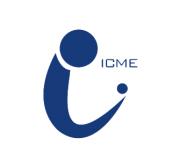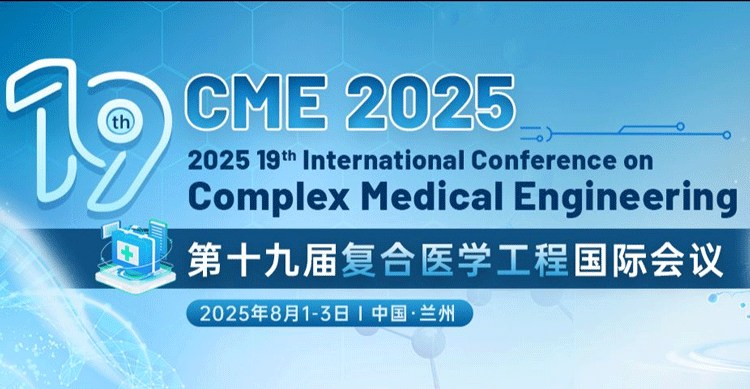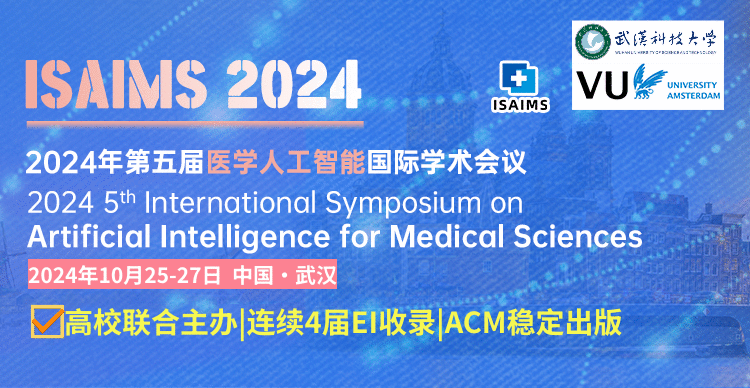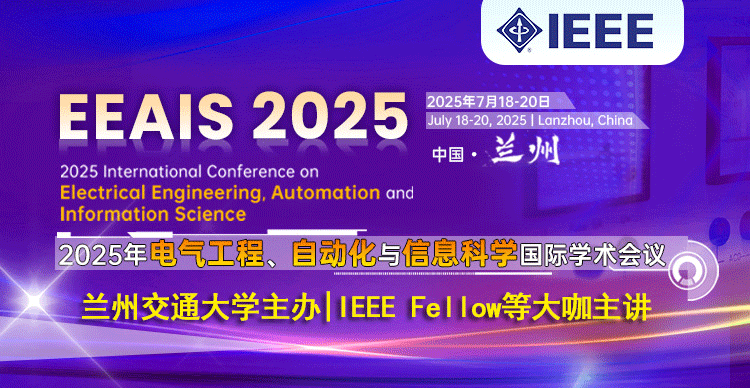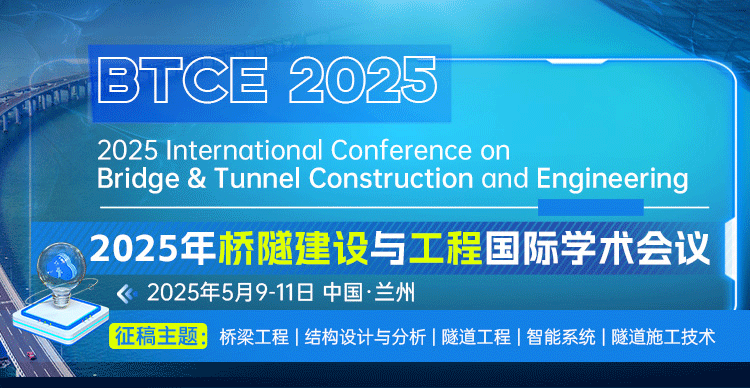第19届复合医学工程国际会议
2025 19th International Conference on Complex Medical Engineering
大会简介
由兰州大学主办的第19届复杂医学工程国际会议(CME2025)将于2025年8月1日至3日在中国兰州举行。本次会议旨在整合计算机科学,信息技术,神经生物工程和心理学的专业知识,以增强科研人员对复杂医学问题的理解,并加速将研究突破转化为实际的医疗保健解决方案。
CME 2025将为国际研究人员、临床医生和行业专家提供一个独特的平台以分享最新发现,会议主题包括先进的脑成像技术和人工智能引导的诊断工具,模拟神经过程的新型计算模型和分析行为的大数据方法。通过促进以计算和数据为中心的方法与基础神经科学和心理学研究的综合,会议旨在促进多学科合作,从而在疾病预防、个性化治疗和整体患者护理方面取得突破。除了高水平的主题演讲、全体会议和小组讨论之外,会议还将以展示新仪器、软件解决方案和新兴概念的研讨会和演示为特色。该活动不仅旨在突出尖端科学,还旨在培养年轻研究人员,促进交流机会,并加强在快速发展的复杂医学工程领域的全球伙伴关系。
组织单位:
主办单位:国际复合医学工程学会(ICME)
承办单位:兰州大学
主讲嘉宾(持续邀约中)
Jesse Hoey 教授
滑铁卢大学
Jesse Hoey 教授是滑铁卢大学David R. Cheriton计算机科学学院的教授,他在那里领导计算健康信息学实验室(CHIL)。他是多伦多向量研究所的教员。
Jesse Hoey教授拥有不列颠哥伦比亚大学计算机科学博士学位(2004年)。他发表了超过一百篇同行评审的科学论文。他的主要研究兴趣是通过尝试构建其核心功能的计算模型来理解人类情感智能的本质,并将其应用于具有社会和经济影响的领域。他是《IEEE情感计算汇刊》的主编,同时也是国际人工智能联合会议(IJCAI 2021)的区域主席。
松本理器 教授
京都大学
自2018年起,松本理器担任神户大学医学研究生院神经科教授。 作为兵库县的最后一道防线,提供全面的医疗服务,涵盖从中风、痴呆和癫痫等常见疾病到顽固性神经障碍。 他同时担任癫痫中心和痴呆中心的主任,构建了一个跨学科的医疗体系。 在研究方面,除了与日本和法国在专门系统脑生理学领域的联合研究外,他还拥有校内外的跨学科研究机会,以及与业界、学术界和政府合作开发超紧凑型EEG设备的机会。 专注于痴呆早期的免疫系统和突触转换(神经元高兴奋性),通过整合分子遗传学、免疫学、病理学、生理学和数学,从细胞培养和动物模型到疾病前队列,开展疾病前病理标志物和治疗干预研究。
大会组委
大会主席
胡斌 教授 IEEE Fellow,兰州大学
陈俊龙 教授 IEEE Fellow,华南理工大学
李青 教授 IEEE Fellow,香港理工大学
吴景龙 教授 冈山大学
村井 俊哉 教授 京都大学
程序委员会主席
奈良 高明 教授 东京大学
张通 教授 IEEE Senior Member 华南理工大学
Micheal A. Nitsche 教授 莱布尼茨工作环境与人为因素研究中心
出版主席
闫天翼 教授 IEEE Senior Member 北京理工大学
蔡涵书 教授 IEEE Member 兰州大学
杨家家 教授 冈山大学
组织委员会主席
陈文波 副教授 兰州大学
钱昆 教授 IEEE Senior Member 北京理工大学
马榕 副教授 兰州大学
征稿主题
包括但不限于:
- · 认知神经科学与技术
- · 神经精神病学和临床神经科学
- · 脑机接口(脑-计算机接口、脑-机器接口)
- · 可持续医学材料和技术
- · 神经生理测量
- · 康复技术-复杂生物信息学和系统生物学
- · 生物传感器和生物分析
- · 医学信息与通信技术
- · 生物医学图像和信号处理
- · 生物医学光学
- · 基于主体的医疗和社会系统建模
- · 计算社会神经科学
- · 神经精神疾病中的社会行为模型
- · 公共卫生和社会福祉的人工智能和大数据分析
- · 医疗保健领域的可穿戴和基于物联网的社会感知
- · 个性化医疗的网络物理社会系统
- · 社会语境中的情感识别和情感计算
- · 神经生理和社会数据的复杂网络分析
论文出版
会议的所有投稿需经过3轮专家审稿,并提交至组委会复核,经过严格的审稿之后,最终录用的论文将由 IEEE (ISBN:979-8-3315-9999-7)出版,收录进IEEE Xplore数据库,见刊后由期刊社提交至 EI Compendex和Scopus检索。
参会方式
—— 每篇录用缴费的文章,允许一名作者免费参会 ——
(1)口头汇报:10-15分钟的全英PPT演讲;
*开放给所有投稿作者与自费参会人员;针对论文或者论文里面的研究做一个10-15min的英文汇报,需要自备PPT,无固定模板要求,汇报和PPT要求英文,建议在PPT首页放上会议简称和logo,PPT格式建议16:9。会前根据会议邮件通知进行提交,详情联系会议秘书。
(2)海报展示:自制电子版海报,会议安排展示;
*开放给所有投稿作者与自费参会人员;格式:全英-A1尺寸-竖版,需自制;制作后提交海报图片至会议邮箱cme2025@163.com,主题及海报命名格式为:现场参会/线上参会-姓名-论文订单号。
(3)仅参会:非投稿作者,现场听众参会。
*仅开放给自费参会人员,(3人及以上)组队参会优惠请联系会议秘书。
注:口头报告和海报展示是学术会议的重要组成部分,有助于促进学术交流、分享研究成果,并满足学术论文发表的条件,每篇文章(投稿文章已录用)请派一位作者出席会议并口头报告/海报展示(优先安排口头报告,名额有限,先到先得),以确保会后顺利出版。特殊情况请联系会议秘书报备,谢谢大家的配合。
Instituted of Complex Medical Engineering
ICME is a non-profit society (organization). The purpose of the society shall be to promote the scientific research and industrial development in the field of complex medical engineering. To this end ICME shall bring together researchers from diverse fields of neuroscience and biomedical engineering. ICME is expected to stimulate the future research and development of new theory new approach and new tools to grow the new field of Complex Medical Engineering. (ICME Website: https://www.isicme.jp/)
The 19th International Conference on Complex Medical Engineering (CME2025) sponsored by Lanzhou University will be held in Lanzhou China from August 1 to 3 2025.This conference aims to integrate expertise from computer science information technology neurobiological engineering and psychology to enhance our understanding of complex medical issues and accelerate the translation of research breakthroughs into practical healthcare solutions.
The human nervous system is extraordinarily complex and effectively addressing this complexity requires combining neuroscience and biomedical science with emerging computational technologies such as artificial intelligence data mining and machine learning. High-performance computing offers exciting new possibilities for discovering hidden patterns in vast datasets modeling the intricate workings of the human brain and swiftly turning theoretical insights into clinical interventions. This multidisciplinary synergy paves the way for groundbreaking innovations and transformative solutions to the complex challenges facing modern medicine.
CME 2025 will serve as a unique platform for an international community of researchers clinicians and industry experts to share their latest discoveries. Topics may range from advanced brain imaging techniques and AI-guided diagnostic tools to novel computational models for simulating neural processes and big data approaches for analyzing behavior. By promoting the synthesis of computational and data-centric methods with fundamental neuroscience and psychological research the conference aims to foster multidisciplinary collaborations that can lead to breakthroughs in disease prevention personalized treatment and holistic patient care.
In addition to high-level keynote speeches plenary sessions and panel discussions the conference will also feature workshops and demonstrations that showcase new instruments software solutions and emerging concepts. The event is designed not only to highlight cutting-edge science but also to nurture young researchers facilitate networking opportunities and strengthen global partnerships in the rapidly evolving field of complex medical engineering.
We warmly welcome you to join us in Lanzhou for CME 2025. Your participation and insights will help expand the boundaries of medical technology and improve healthcare outcomes worldwide. We look forward to seeing you in Lanzhou and hope you will have a productive and memorable conference experience.
Full Paper Submission Date:May 182025
Registration Deadline:June 17 2025
Final Paper Submission Date:July 2 2025
Conference Dates:August 1-3 2025
Speakers
Keynote Speaker
Professor Jesse Hoey
University of Waterloo Canada
Dr. Jesse Hoey is a professor in the David R. Cheriton School of Computer Science at the University of Waterloo where he leads the Computational Health Informatics Laboratory (CHIL). He is a Faculty Affiliate at the Vector Institute in Toronto. Dr. Hoey holds a Ph.D degree (2004) in computer science from the University of British Columbia. He has published over one hundred peer reviewed scientific papers. His primary research interest is to understand the nature of human emotional intelligence by attempting to build computational models of some of its core functions and to apply them in domains with social and economic impact. He is Editor-in-Chief of the IEEE Transactions on Affective Computing and an Area Chair for the International Joint Conferences on Artificial Intelligence (IJCAI 2021).
Keynote Speaker
Professor Riki Matsumoto
Kyoto University Japan
Since 2018 Riki Matsumoto has been a professor at the Department of Neurology Graduate School of Medicine Kobe University. As the last bastion in Hyogo Prefecture we provide comprehensive medical services ranging from common conditions like stroke dementia and epilepsy to stubborn neurological disorders. Serving as the director of both the Epilepsy Center and the Dementia Center we have built an interdisciplinary healthcare system. In terms of research besides joint studies with Japan and France in specialized systems brain physiology I also have opportunities for interdisciplinary research both within and outside the university as well as collaborative research and development of ultra-compact EEG devices with industry academia and government. Focusing on immune system and synaptic transformation (neuronal hyperexcitability) in the early stages of dementia we are conducting pre-disease pathological marker and therapeutic intervention studies by integrating molecular genetics immunology pathology physiology and mathematics from cell culture and animal models to pre-disease cohorts.
Call For Papers
The ob
The topics of interest for submission include but are not limited to:
· Cognitive Neuroscience and Technology
· Neuropsychiatry and Clinical Neurosciences
· Brain Machine Interface & Brain Computer Interface
· Sustainable Materials and Techniques in Medicine
· Ncurophysiological measurements
· Technology in Rehabilitation-Complex Bioinformatics and Systems Biology
· Biosensors and Bio-analytics
· Information and Communication Technology in Medicine
· Biomedical Image and Signal Processing; Biomedical Optics
· Agent-ba
· Computational Social Neuroscience
· Social Behavioral Modeling in Neuropsychiatric Disorders
· AI and Big Data Analytics for Public Health and Social Well-being
· Wearable and IoT-ba
· Cyber–Physical–Social Systems for Personalized Medicine
· Emotion Recognition and Affective Computing in Social Contexts
· Complex Network Analysis of Neurophysiological and Social Data
Publication
Submit to Conference Proceedings (EI)
All papers will be reviewed by two or three expert reviewers from the conference committees. After a careful reviewing process all accepted papers will be published by IEEE (ISBN:979-8-3315-9999-7)and will be submitted to IEEE Xplore EI Compendex Scopus for indexing.
Note: All submitted articles should report original research results experimental or theoretical not previously published or under consideration for publication elsewhere. Articles submitted to the conference should meet these criteria. We firmly believe that ethical conduct is the most essential virtue of any academic. Hence any act of plagiarism or other misconduct is totally unacceptable and cannot be tolerated.

